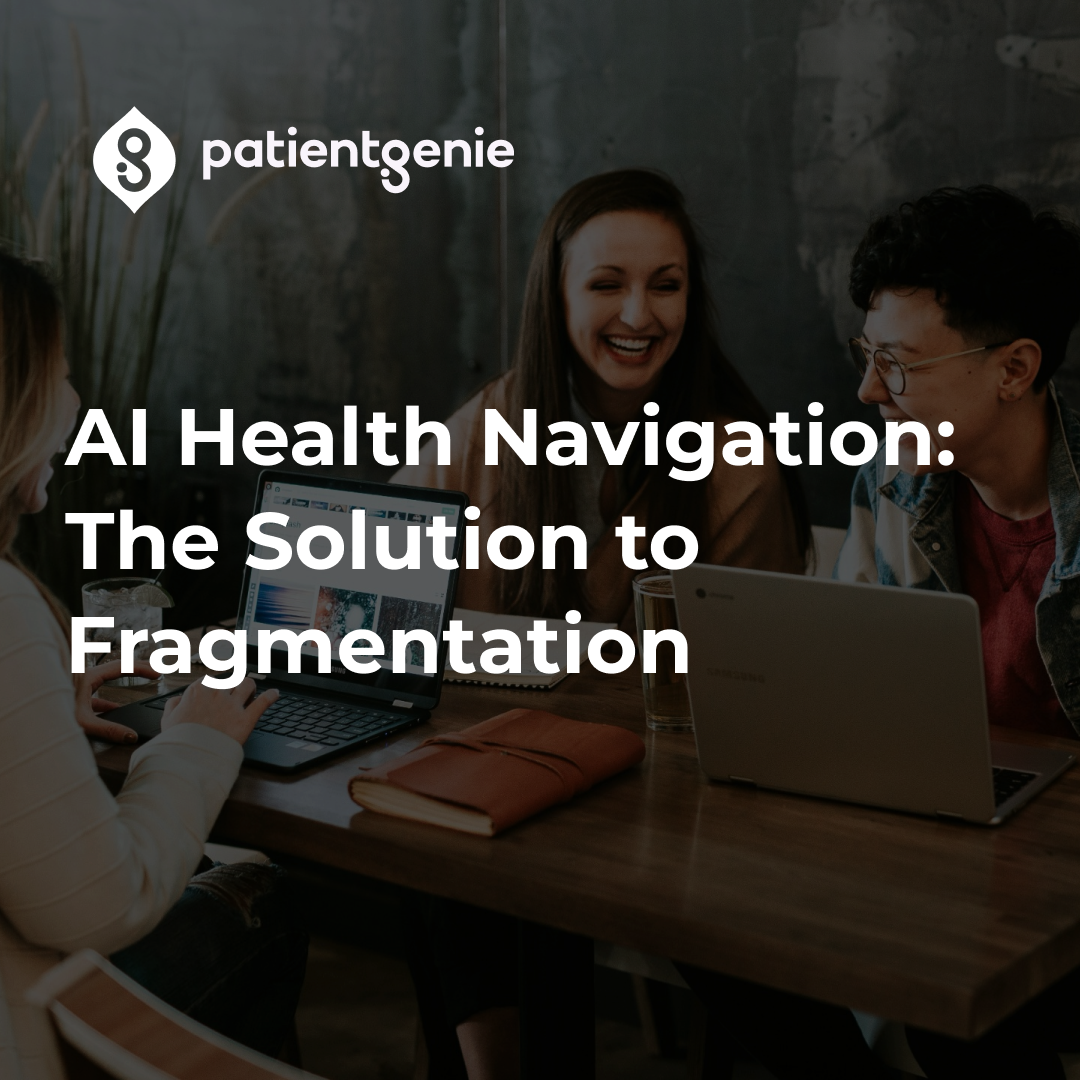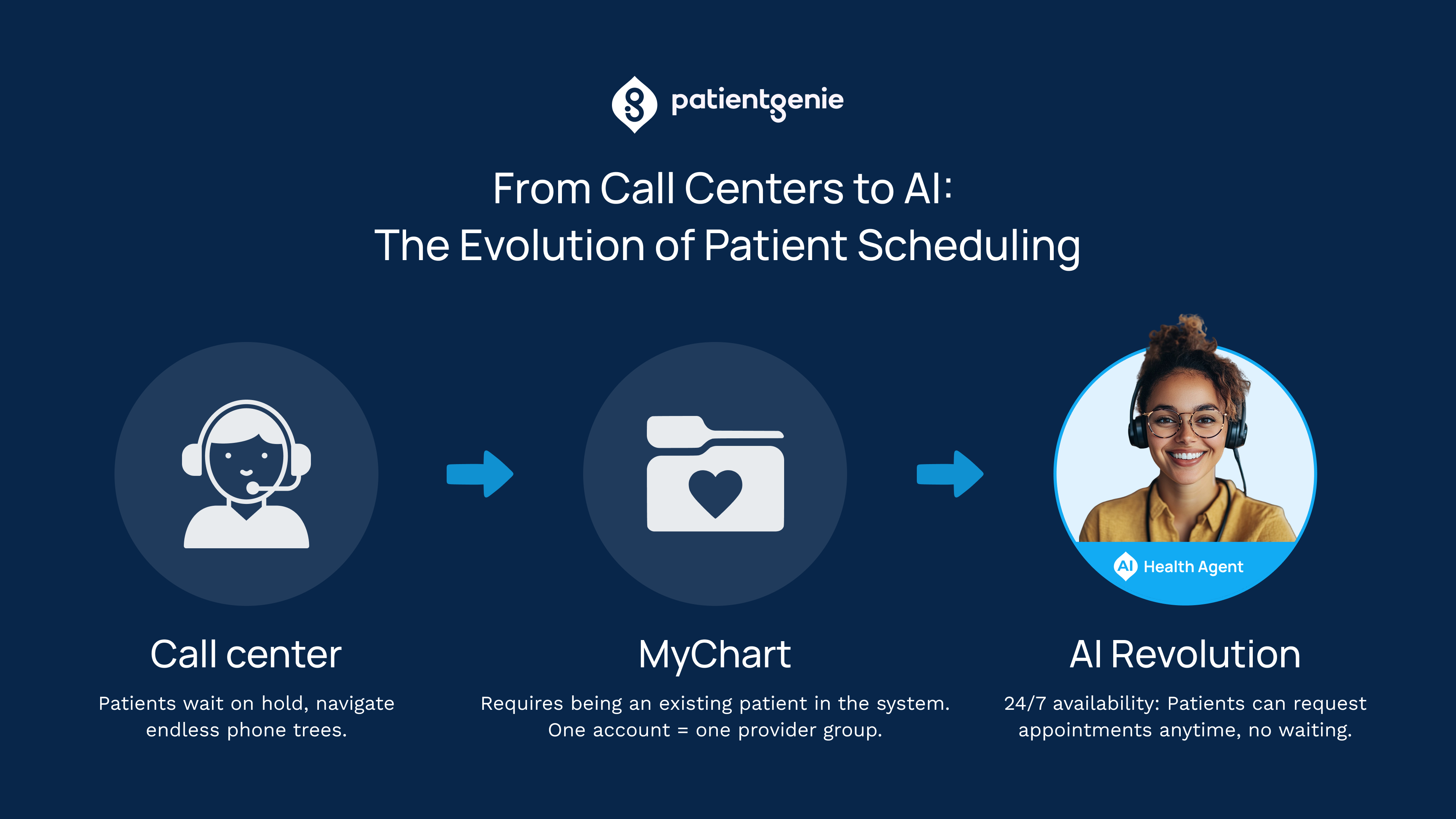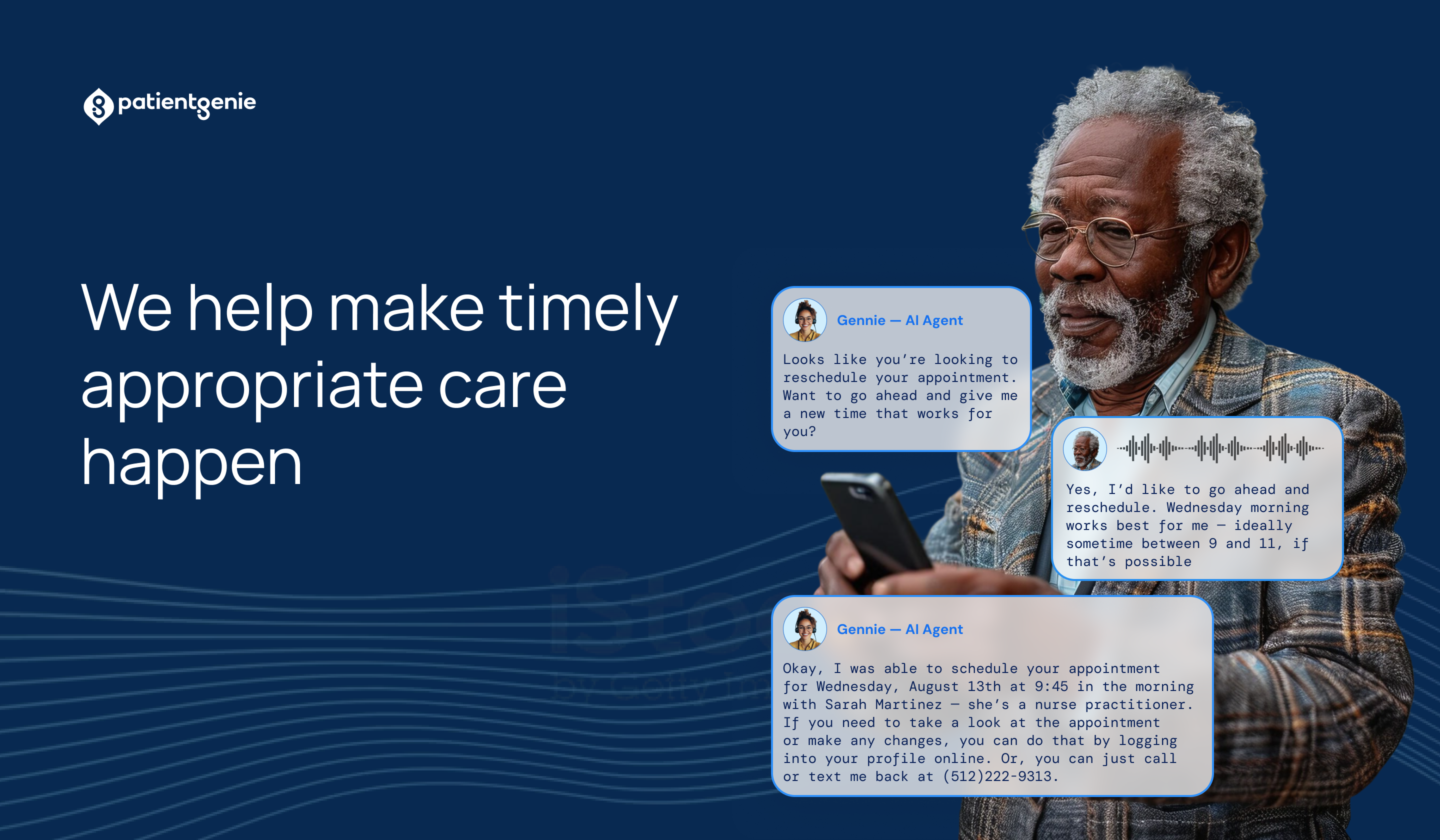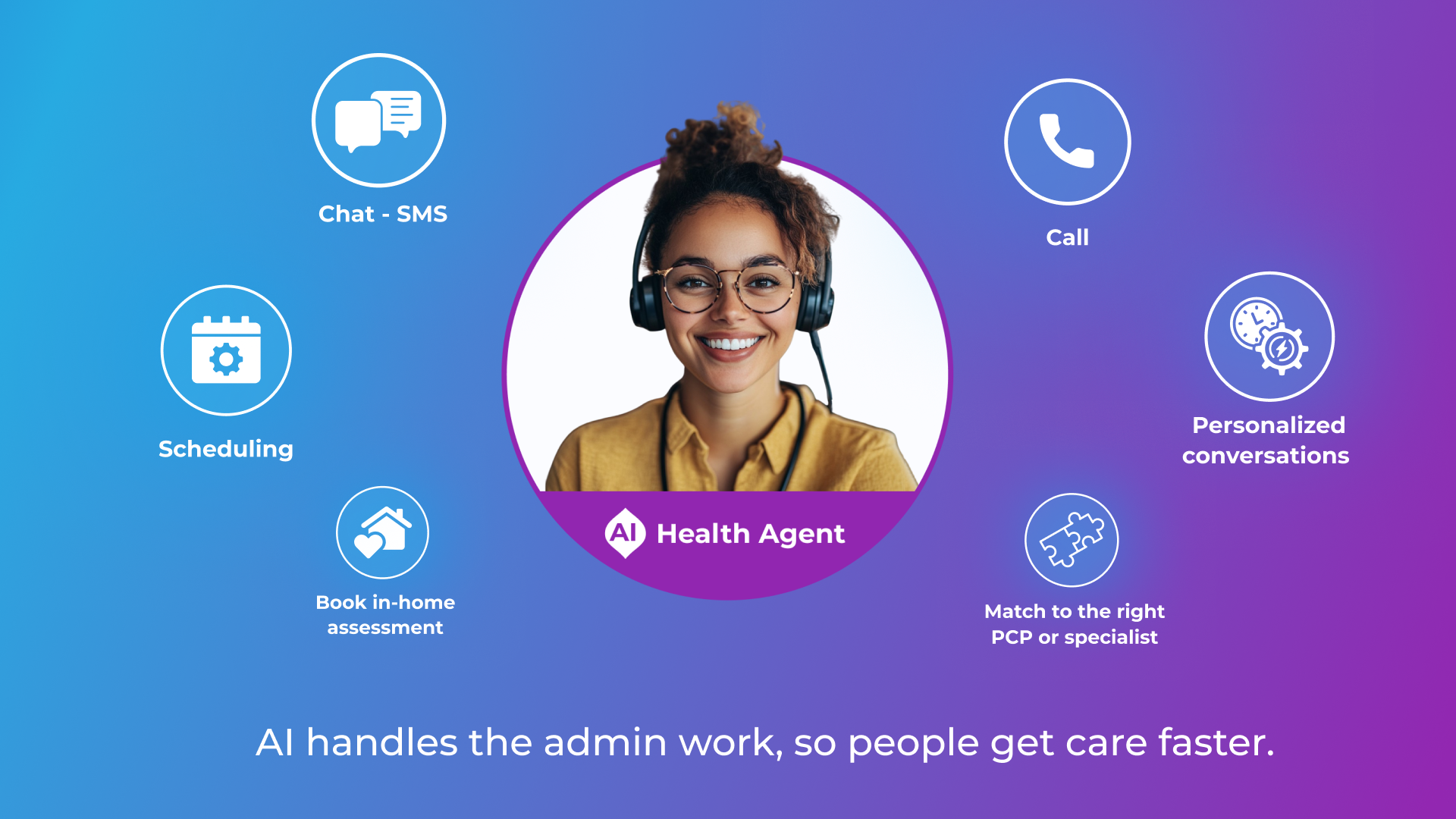7/24/2024
AI: The Cure for Fragmented Healthcare Navigation

Navigating the healthcare system is a daunting task for many, with complex networks, varied providers, and numerous touchpoints. The path to receiving proper care—whether it's finding the right specialist, scheduling an appointment, or understanding treatment options—is often filled with obstacles due to the fragmented nature of the system.
Recognizing these challenges, PatientGenie’s co-founders decided to transform the landscape of healthcare navigation. They harnessed the power of artificial intelligence (AI) to provide intelligent, streamlined solutions that guide patients seamlessly through their healthcare journey.
Breaking Down The Challenges in Healthcare Navigation
1. Fragmented Information: Patients often find themselves lost in a sea of information from various sources, making it difficult to get a clear picture of their healthcare options.
2. Lack of Transparency: Understanding healthcare costs, comparing providers, and knowing what to expect from a treatment plan can be nearly impossible without transparent and accessible information.
3. Decision-Making Difficulties: With so many choices and variables to consider, making informed healthcare decisions can be overwhelming and time-consuming.
The Solution of AI in Health Navigation
1. Personalized Guidance: AI can tailor healthcare suggestions based on an individual's medical history, preferences, and current health needs. This ensures that patients receive the most relevant and effective care options.
2. Simplified Appointment Scheduling: By automating the scheduling process, AI reduces wait times and administrative burdens, allowing patients to book appointments quickly and easily.
3. Price transparency: Crucial in healthcare, empowering patients to make informed decisions by understanding the costs involved. AI enhances price transparency by analyzing and presenting clear, accurate pricing information from various providers, helping patients compare costs and choose the best value options.
4. Enhanced Patient Experience: By providing a seamless and efficient navigation process, AI improves the overall patient experience. Patients feel more supported and confident in their healthcare journey.
5. Better Health Outcomes: Timely and appropriate care is critical for positive health outcomes. AI helps ensure that patients receive the right care at the right time, reducing the risk of complications and improving recovery rates.
The future of healthcare navigation is here, and it is powered by AI. By addressing the challenges of fragmented information, lack of transparency, and decision-making difficulties, AI is transforming the patient experience and driving better health outcomes. Our AI-driven platform is at the forefront of this revolution, offering personalized, efficient, and effective solutions that benefit both patients, employers and providers.
Your wish for a unified, efficient navigation is now a reality with PatientGenie.
Schedule a Demo
Last news
From Call Centers to AI: The Evolution of Patient Scheduling
For decades, scheduling a healthcare appointment has meant waiting on hold, navigating phone trees, and hoping someone answers before you give up.
Now, a new era is here. AI-powered scheduling agents work around the clock to match patients with the right provider and book appointments — calling offices, verifying availability, and even making multiple attempts until the job is done.
9/24/2025PatientGenie 2030: What a World with Frictionless Access Might Look Like
What if getting care was as simple as saying, ‘I need help’? By 2030, it can be. At PatientGenie, we’re building the infrastructure for frictionless healthcare access—AI agents that call providers, engage members, schedule in-home assessments, match patients with PCPs, and coordinate follow-ups automatically. No portals. No hold music. No missed care. This isn’t the future—it’s happening now, and it’s changing how patients, providers, and health plans connect. Let’s make 2030 happen, now.
8/5/2025


